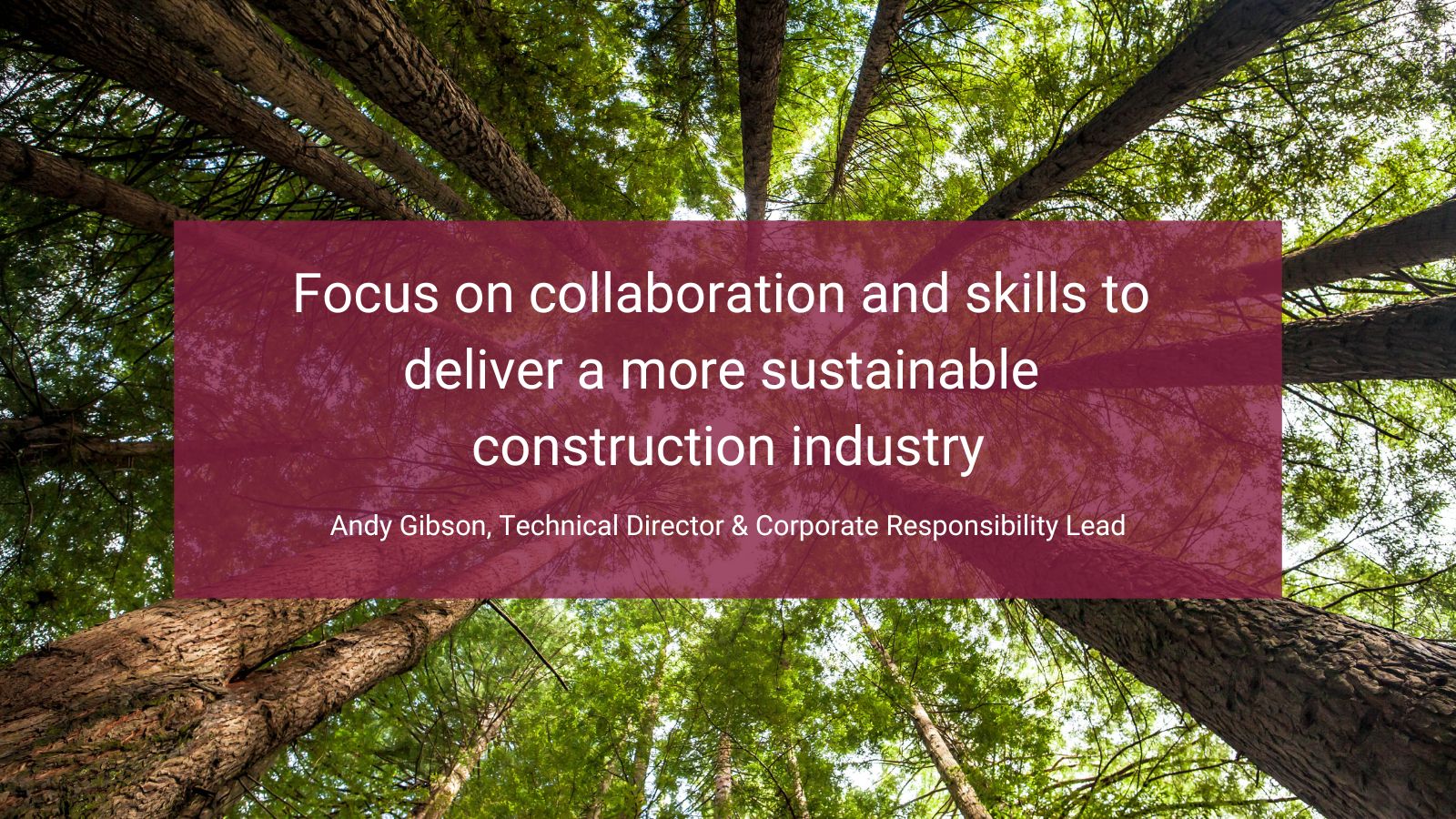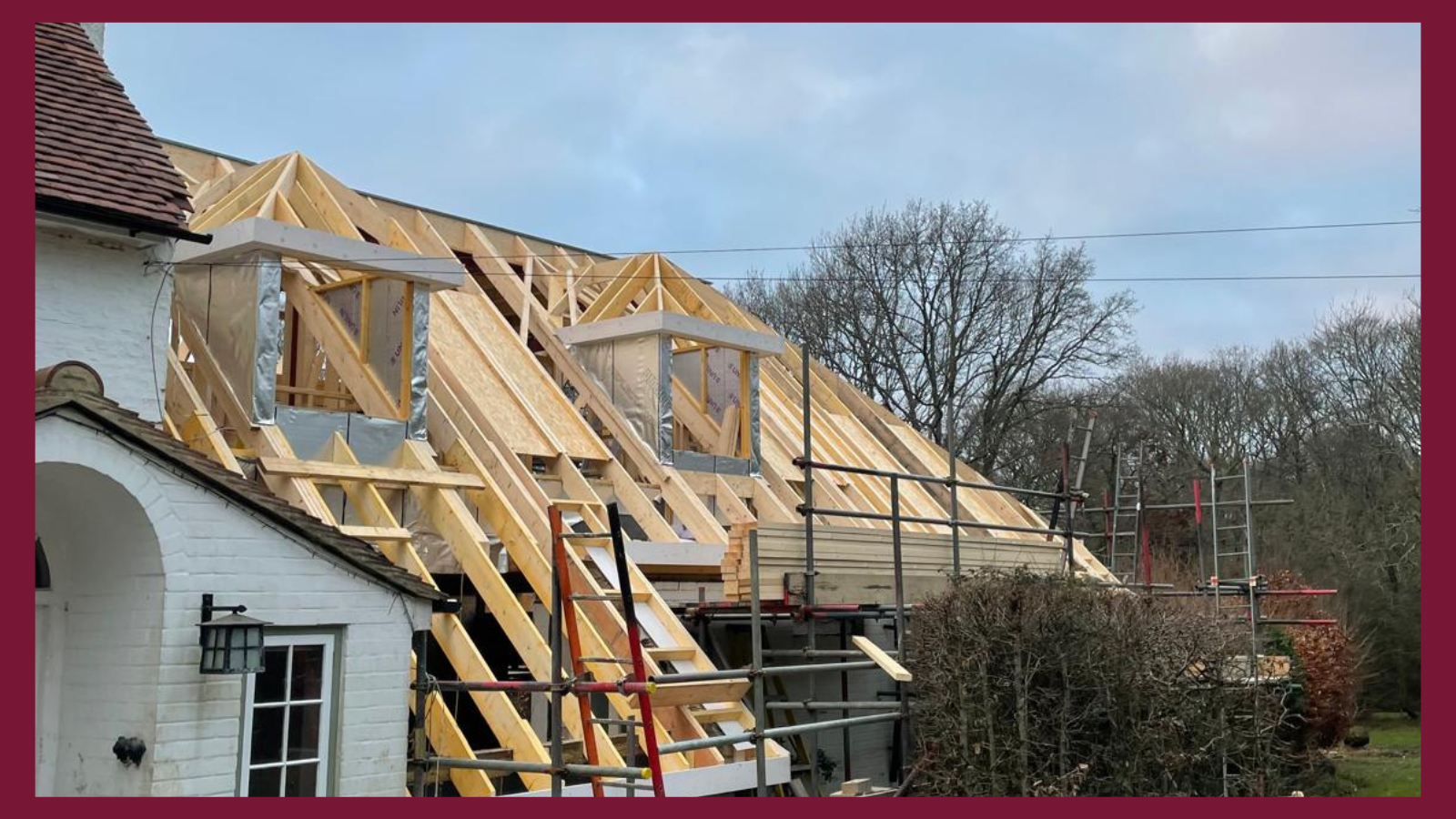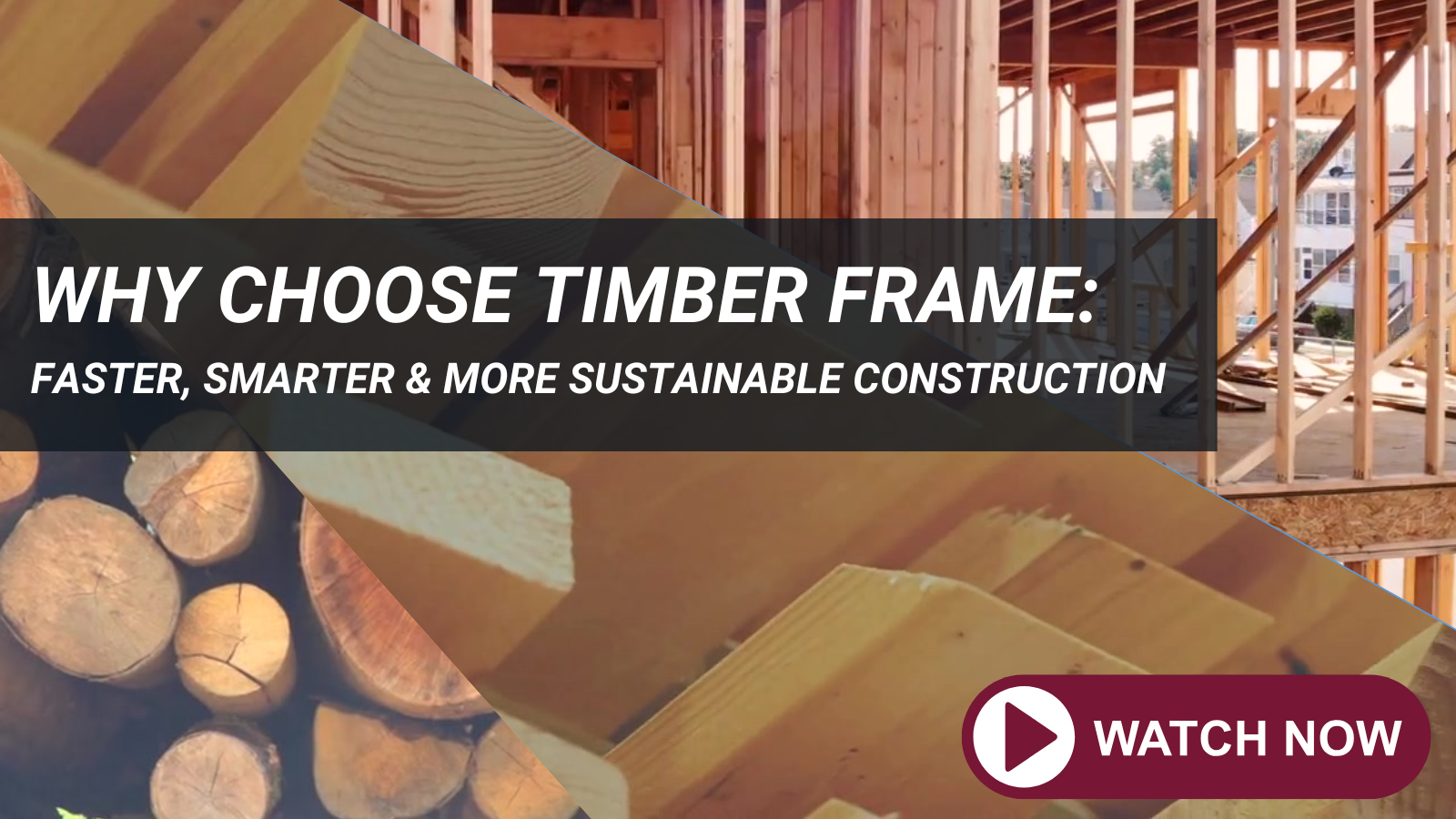Focus on collaboration and skills to deliver a more sustainable construction industry

Sustainability sits at the heart of our future as a company and is vital to ensuring we can offer the highest quality and most cost-effective products and services for our valued customers. However, achieving Net Zero goes far beyond one company’s actions. That is why we’re committed to collaborating both within the structural timber industry and with the wider construction sector. From innovating to ensure new standards are met, to investing in training so key skills are developed, working together will fast track the changes needed to deliver this transition.
Andy Gibson, Technical Director & Corporate Responsibility Lead, at Merronbrook shares why connecting with industry bodies is a great way to kick start collaboration, and how his personal passion took him on a journey to develop key skills around sustainability and interdisciplinary collaboration that are shaping Merronbrook’s strategic approach.
You recently joined the Structural Timber Association’s (STA) Sustainability Steering Group, what drove that decision?
It is fantastic to be part of an industry that has several representative organisations that are engaging proactively to solve challenges and showcase the potential contribution we can make to the UK net zero goals. We saw this in action with the recent publication of the UK Government’s Timber in construction roadmap, demonstrating industry bodies including the STA and Timber Development UK (TDUK) are our collective voice in positively shaping the change we want to see nationally. For me, becoming involved in the STA Sustainability Steering Group has highlighted that we all have a role to play in sharing our skills to benefit the industry as a whole, and how we can collaborate to accelerate progress on environmental practices. Ultimately the more you engage, the more you get back and there is a real sense of being part of a positive change.
Climate change can be an overwhelming topic for many people, raising a huge number of questions – where do you start, what is the best approach, what needs to change within your business and what needs to shift in the wider industry? I really recommend other leaders, and colleagues across the industry, look to their industry bodies. It’s a great way to connect, especially when approaching systemic issues like sustainability, learning from others who may have dealt with similar challenges, as well as sharing your experience. Merronbrook is committed to being part of co-creating best practice, contributing to the vital shift to more sustainable methods of construction.
It’s clear that collaboration is a core commitment for Merronbrook, how are you looking beyond the timber industry to be part of solving wider construction sector challenges?
Our clients are our key focus and in order to best meet their needs, we’re proactively supporting them with sustainability, particularly helping them meet new regulations such as the Future Home Standard (FHS). As an industry, I think everyone in construction is aware that these new legally binding requirements are important to make sure all new homes from 2025 are zero carbon ready and sustainable but, equally, they are ambitious and raise a number of challenges to implement in time.
We’re proactively supporting our clients to be ready for the FHS. But, more widely this new standard highlights how critical it is for companies from across the construction sector to be collaborating to develop and accelerate adoption of sustainable construction approaches and materials, as well as investing in training, which will help the new regulation be implemented successfully and that the positive sustainable impact is seen. Across the industry, from housebuilders to building control, there is a need to rapidly up-skill teams. Alongside this, we need to collectively communicate with the end customers – the homeowner – so they understand the importance of these changes in delivering a more sustainable future.
This is an area where cross industry organisations can offer businesses huge benefits and a great example of this is Future Homes Hub. It is a cross construction organisation connecting housebuilders, suppliers and government in order to foster partnerships and support the new homes sector to be part of solving climate and environmental challenges and help deliver Net Zero. I’m proud to be part of the Fabric Implementation Group – one of several specialist groups looking into the detail of different areas of the new requirements, helping provide guidance and tracking progress to successfully deliver the FSH by 2025.
Learning to collaborate as an industry in response to the FSH, as well as the new Biodiversity Net Gain rules, will also help us successfully adopt potential future sustainability legislation. This is just the start; we’re anticipating that this shift will require us to continue to flex and adapt – and collaboration and a commitment to education will underpin how successfully we deliver the broader changes needed to ensure the industry becomes more sustainable.
So how are you ensuring the Merronbrook team develop their sustainability skillset?
Sustainability is no longer an add on – it requires a systemic approach and at Merronbrook we are actively on that journey. A shared commitment across our company’s leadership team has driven this approach, and we are looking at every area of our business and strategy and ensuring that sustainability is a key objective. As a team we’re also very aware of incoming regulation and the role timber can play going forwards as a sustainable choice for construction. We’re here to advise clients on how we can support them in planning and materials decisions.
It starts with our skills as directors, I think that is something that should be discussed as an industry – as leaders it is our responsibility to effectively lead our business during this challenging time. As Technical Director I’ve been on a journey to develop my own skillset and I’m currently completing my masters (MSt) at Cambridge University in Interdisciplinary Design for the Built Environment (IDBE). This course brings together experienced professionals and leaders from across construction, architecture and design and actively focusses on the need for an interdisciplinary approach to meeting the challenge of climate change.
We’re committed to supporting our team to access the training and develop the skills they need. We’re relatively unusual in that our sales team are all technical experts and project manage as well, so they have a diverse skillset that puts them in a strong position to support customers with sustainability. Merronbrook supports them to gain the relevant professional skills and qualifications needed, as well as ongoing CPD. We also focus on skills sharing and mentoring within the team. I’m hands on within the company to provide support in this area to clients.
I would say that sustainability is not a standalone skill set, as with my course it needs to be taught within all disciplines in future – not as a separate training but embedded in every role. We also need to upskill our existing teams who might already have qualifications which at the time did not focus on this topic. Here, on the job knowledge sharing is key, and this is also an area where industry bodies can play a role offering add on courses and guidance to experienced professionals, as well as ensuring their entry level training is now up to date with the latest environmental practices.
What would your advice to other leaders in construction be?
Helping shift to more sustainable construction, and meeting the UK Net Zero goals, will require collaboration and skills sharing. There is no time like the present. So, I would recommend getting involved with your industry body, think about the skills that your team will need to deliver new regulation and how sustainability can be part of your business’s core strategy.
I’m very keen to connect and learn from how other people are approaching this, as well as offering my support and experience to clients and partners. You can email me via andy@merronbrook.co.uk or call to set up a meeting 01252 844747.


